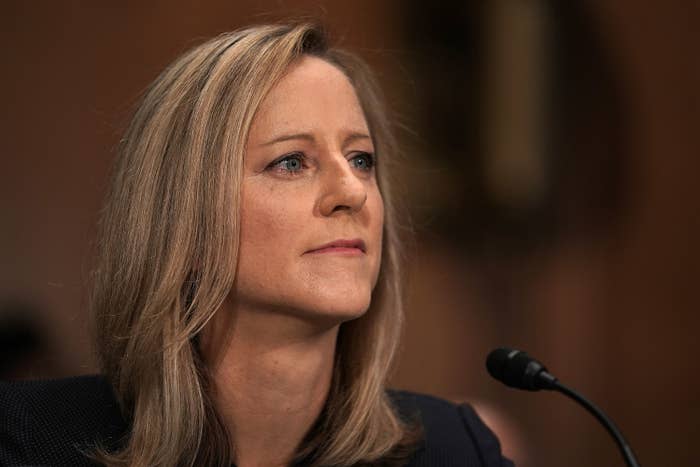
WASHINGTON — The Consumer Financial Protection Bureau released a final rule Tuesday that makes it easier for payday lenders to give out high-interest loans to people who may not be able to repay them.
The CFPB rule undoes an Obama-era requirement that payday lenders must first assess whether someone taking out a loan can actually afford to repay it. Essentially, it would have put the same onus on payday lenders that banks have for giving out long-term loans like mortgages.
Democrats and consumer advocates have accused the Trump administration of gutting protections for the most vulnerable consumers in the midst of a pandemic-induced economic crisis.
Sen. Elizabeth Warren said the rule makes a mockery of the CFPB’s mission to protect consumers and gives the industry free rein to trap vulnerable communities in cycles of debt.
Short-term payday loans regularly come with interest rates that top 300%; depending on state laws, they can top 500% or even 600%. Lenders often allow people to roll over their loans by paying a fee to delay repayment.
This is called “loan churn,” and it is how a two-week loan can balloon into long-term debt. The CFPB’s own analysis in 2014 found that 80% of payday loans were either rolled over or followed by another short-term loan within two weeks. Interest fees regularly surpass the original principal on the loan.
“The consequences could be devastating,” said Mike Litt, consumer campaign director at US PIRG, the federation of state public interest research groups. “If you’re already having trouble as it is, taking out a payday loan could make a bad situation worse where you’re taking out loan after loan and spiraling into a debt trap because you couldn’t afford the first one.”
The CFPB did not respond to a request for comment. In a press release, the agency's director, Kathleen Kraninger, said the move was made to provide consumers with more access to capital.
“Our actions today ensure that consumers have access to credit from a competitive marketplace, have the best information to make informed financial decisions, and retain key protections without hindering that access,” she said in the statement.
The "ability to pay" requirement was developed late in the Obama administration and finalized in October 2017. But the very next month, the Trump administration appointed Mick Mulvaney as acting director, and he announced that implementation would be delayed. The administration later began the process of getting rid of the requirement altogether.
In 2019, the Washington Post published leaked audio of payday lenders discussing the need to raise large sums of money for Trump’s reelection campaign to gain favor with the administration.
Ironically, some moves by the Trump administration to weaken the CFPB could end up being used to undo the president's policies.
The bureau was created after the 2008 financial crisis and designed to be independent of the president. Its directors would be confirmed by the Senate for five-year terms and could not be fired by the president without cause. The Trump administration argued in court that this is unconstitutional. Just last week, the Supreme Court agreed and ruled the president can fire a CFPB director at will.
Democratic presidential candidate Joe Biden strongly hinted in a tweet that he will fire Kraninger.
Here’s my promise to you: I’ll appoint a director who will actually go after financial predators and protect consumers. https://t.co/LYY54KXbUk
Similarly, in 2017 the Republican-controlled Congress exploited the little-known Congressional Review Act of 1996 to roll back dozens of Obama-era rules and regulations. If the Democrats are successful in the November election, they could turn the tables and do the same to Trump's rules.
Linda Jun, senior policy counsel at Americans for Financial Reform, said if Biden wins he would have several avenues to restore the "ability to pay" requirement.
“I hope it’s high on their priority list,” she said. “Ability to repay is a common lending principle. The idea that you have to consider this like every other loan is what this rule is about. For them to say you don’t have to do that, I think that’s really disconcerting, especially when people are vulnerable.”
